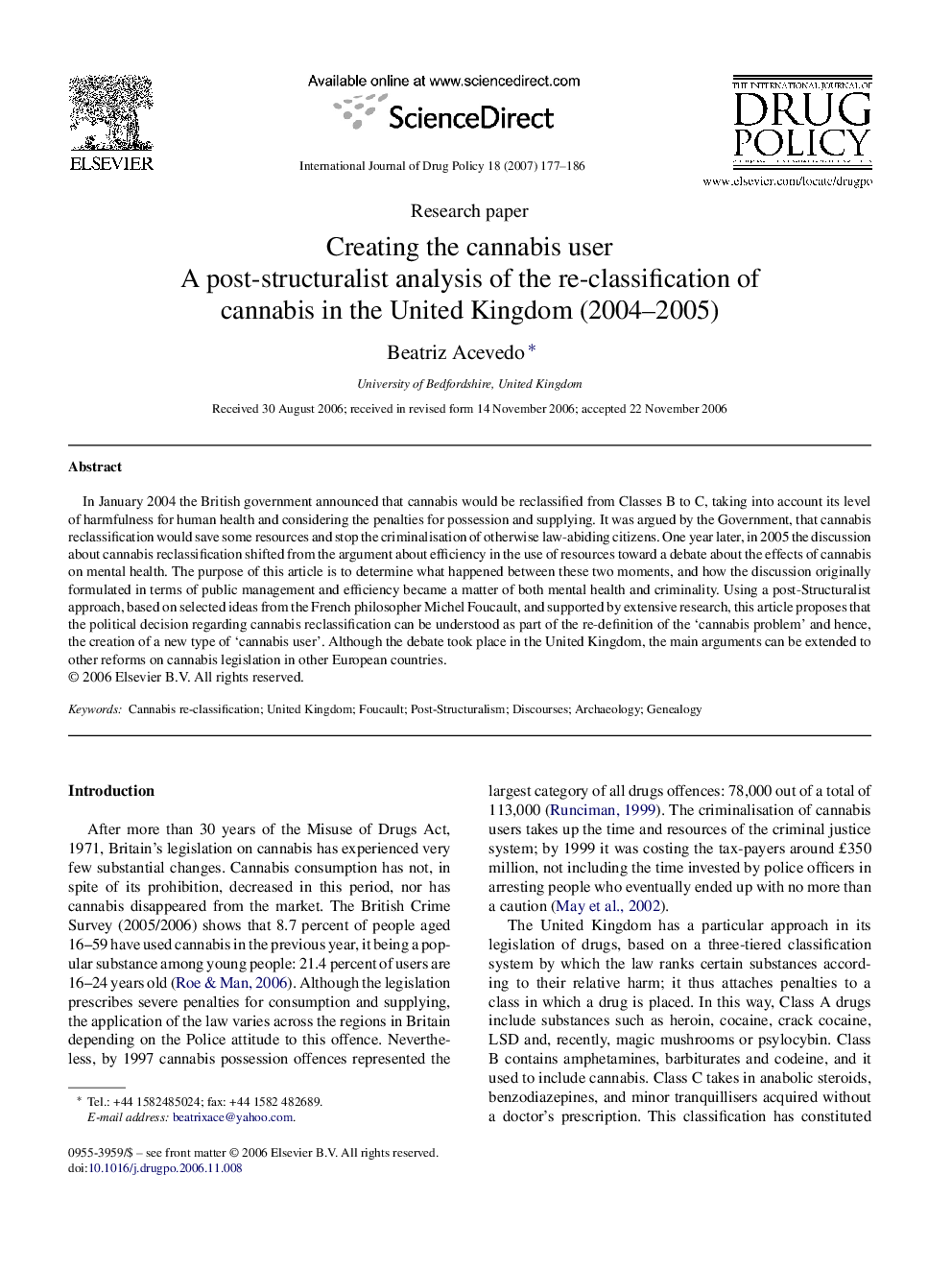| Article ID | Journal | Published Year | Pages | File Type |
|---|---|---|---|---|
| 1075934 | International Journal of Drug Policy | 2007 | 10 Pages |
In January 2004 the British government announced that cannabis would be reclassified from Classes B to C, taking into account its level of harmfulness for human health and considering the penalties for possession and supplying. It was argued by the Government, that cannabis reclassification would save some resources and stop the criminalisation of otherwise law-abiding citizens. One year later, in 2005 the discussion about cannabis reclassification shifted from the argument about efficiency in the use of resources toward a debate about the effects of cannabis on mental health. The purpose of this article is to determine what happened between these two moments, and how the discussion originally formulated in terms of public management and efficiency became a matter of both mental health and criminality. Using a post-Structuralist approach, based on selected ideas from the French philosopher Michel Foucault, and supported by extensive research, this article proposes that the political decision regarding cannabis reclassification can be understood as part of the re-definition of the ‘cannabis problem’ and hence, the creation of a new type of ‘cannabis user’. Although the debate took place in the United Kingdom, the main arguments can be extended to other reforms on cannabis legislation in other European countries.
